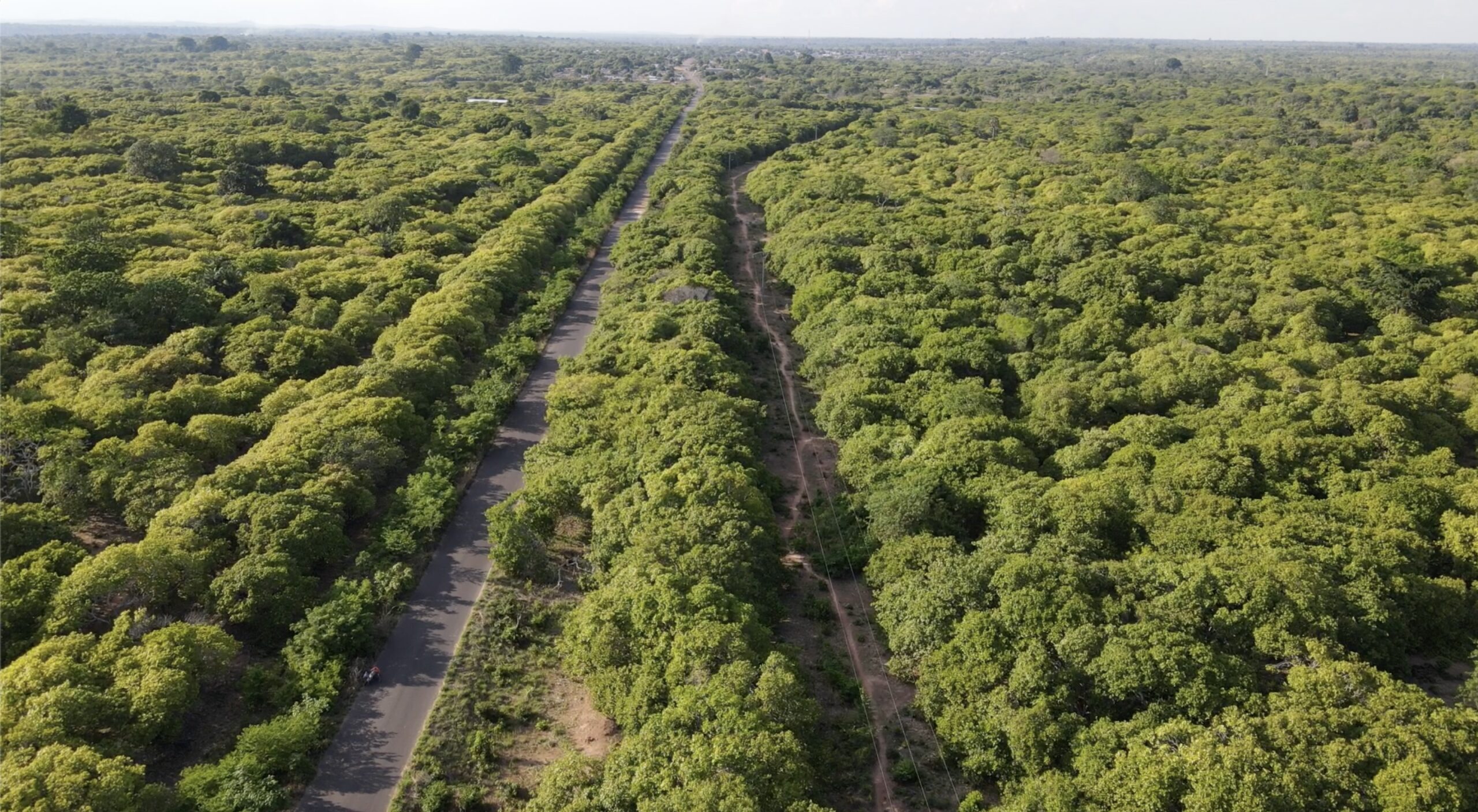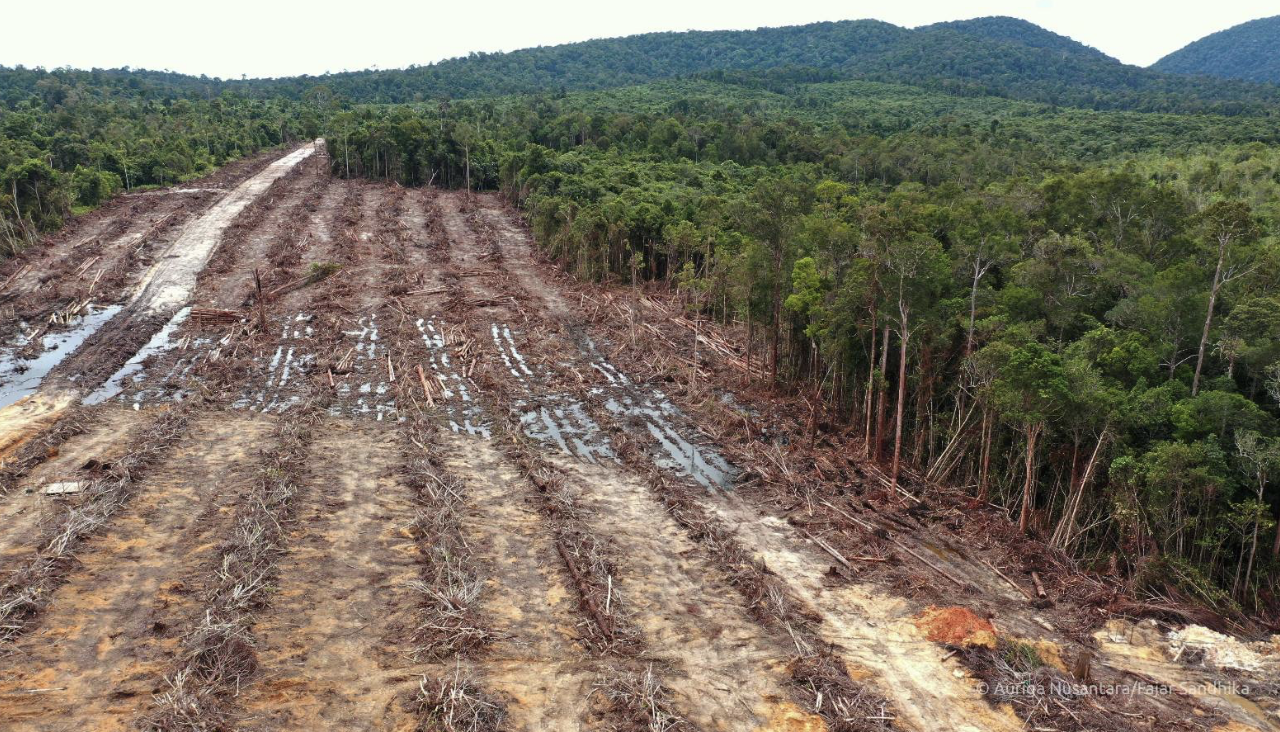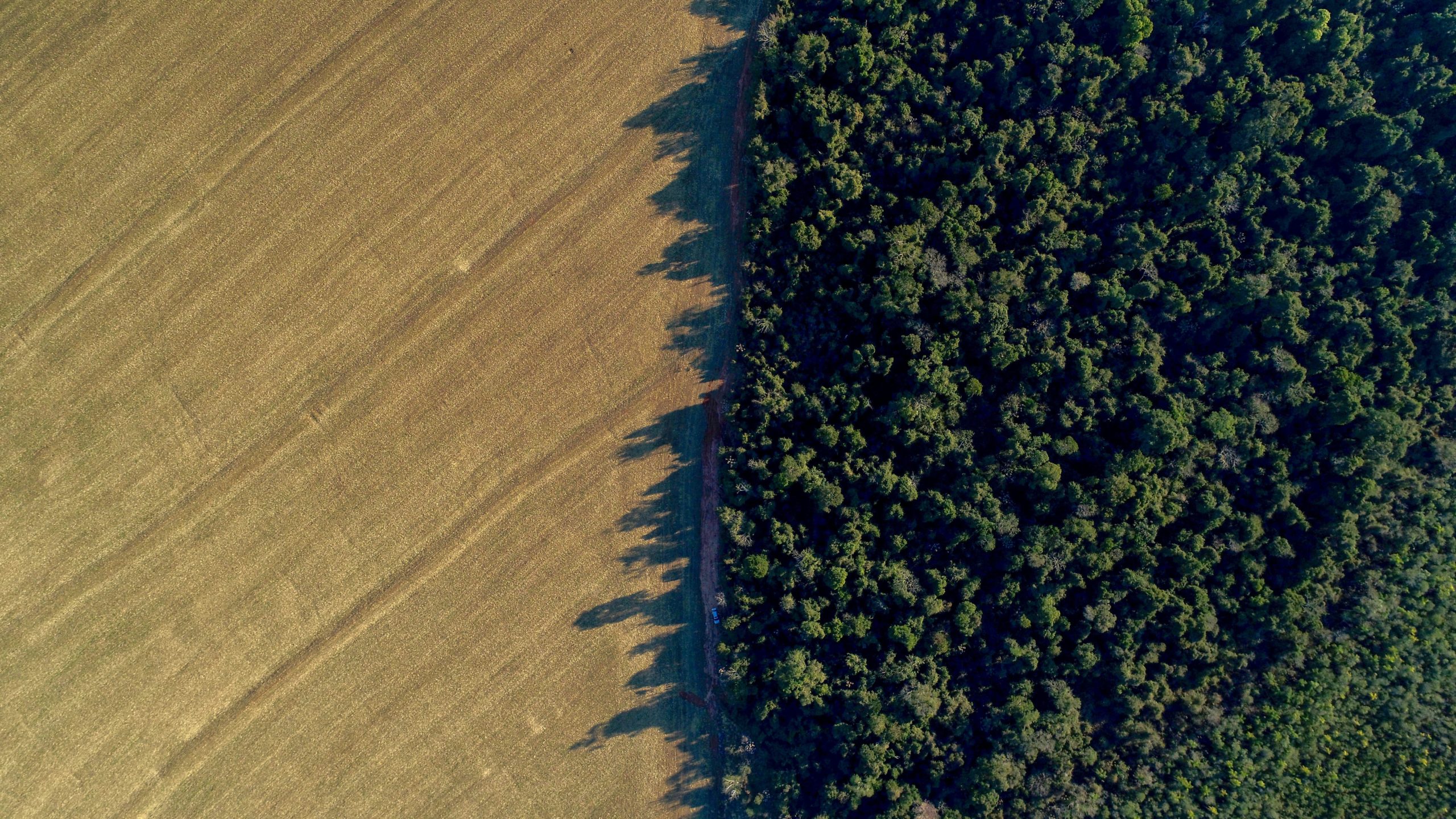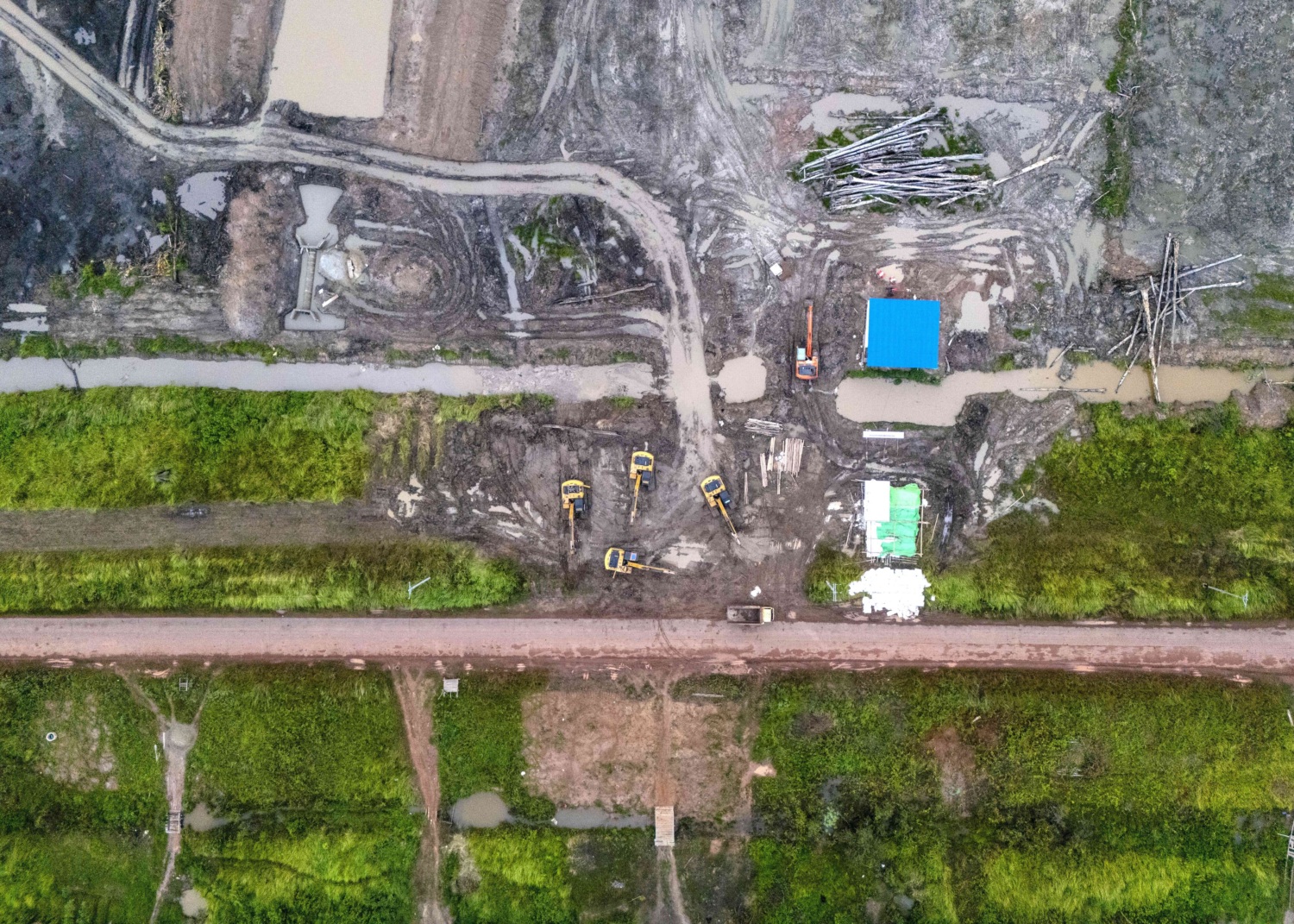
New report warns global demand for cashews is driving nature loss and food insecurity in Côte d’Ivoire
Mighty Earth is calling for the industry to take action to halt further cashew expansion in the West African country to allow nature to recover
 A single crop dominates the landscape near Bondoukou, Northeast Côte d’Ivoire: cashew. Source: Mighty Earth
A single crop dominates the landscape near Bondoukou, Northeast Côte d’Ivoire: cashew. Source: Mighty Earth
A new report by Mighty Earth, Regroupement des Acteurs Ivoiriens des Droits Humains (RAIDH), and Green Forest Africa reveals, for the first time, how increasing global demand for cashews has driven a rapid expansion of cashew orchards in Côte d’Ivoire, causing nature loss and threatening food security.
The West African country is now the number one exporter of cashew in the world, earning over $961 million from cashew exports in 2021, and producing more than one million tons of cashew in 2022. Last year the global cashew market was worth $7 billion.
Côte d’Ivoire has lost as much as 90% of its forests over the past 30 years, with agriculture, largely cocoa, as the primary driver. The report warns that further nature loss from cashew expansion must be avoided.
Key findings from the report:
- Satellite analysis by Mighty Earth reveals that some cashew-growing regions in Côte d’Ivoire have seen as much as a 25% loss of primary forest cover between 2019 – 2023.
- An area nearly the size of the Hawaiian islands (1.6 million hectares) is used to cultivate cashews in Côte d’Ivoire.
- The US is the world’s largest consumer of cashew. In 2021, it imported nearly 30% of the world’s cashew nut kernels, with Germany (10.5%) and the Netherlands (8.27%) being the next largest importers.
While providing vital income for farmers, much of this farming has taken place on forested savannah landscapes, crucial for wildlife. One of West Africa’s most important wildlife reserves, the Comoé National Park, is surrounded to the East, South and South-West by cashew plantations. The park is home to the critically endangered Western Chimpanzee, and is one of the species’ last remaining intact habitats.
Amourlaye Touré, Senior Adviser at Mighty Earth said:
“Mighty Earth has been working to end cocoa-driven deforestation in Côte d’Ivoire for many years. Through satellite data analysis and ground investigations with local partners, we began tracking threats to the remaining forests posed by other commodities, notably natural rubber in the south, and cashew in the north.”
“Cashew plantations dominate the landscape as far as the eye can see. Growing up in Côte d’Ivoire there was always an abundance of wildlife, but travelling through cashew growing regions now, it’s very hard to spot wild animals or birds.”
“We need to ensure cashew farmers are supported to shift to sustainable practices to safeguard their livelihoods and protect nature.”
A farmer from Tioro village, near the town of Korhogo, told Mighty Earth:
“Certainly, cashew nuts have enabled us to develop our villages, but we are aware that cashew cultivation has caused many of our natural species to disappear. It has driven away many animals easily found in the savannah.”
The Conseil du Coton et de l’anacarde (Cotton and Cashew Council), which oversees the Ivorian cashew sector, says the industry plays a vital role in the economy of the north of the country, supporting around half a million farming households. However, the report reveals that the expansion of cashew orchards over vast areas has created “green deserts” devoid of biodiversity. When combined with heavy use of chemical pesticides, single-crop cashew ‘monocultures’ pose an existential threat to the country’s native flora and fauna.
Cashew expansion comes with a human cost too. In northern Côte d’Ivoire, cashew trees have rapidly replaced the cultivation of traditional food crops such as yams and cassava, meaning farmers must buy these diet staples. A supply glut of cashew in early 2023 caused the market to crash, leaving many rural households vulnerable to food and nutritional insecurity.
Ofi, one of the largest cashew producers of cashew in the world with processing facilities in Côte d’Ivoire shared information about its cashew sustainability issue for the report.
In response to the concerns raised in the report, Ofi said:
“Given farmers’ lack of access to knowledge about good agricultural practices and the importance of biodiverse landscapes for resilient farming and food systems, it is easy to understand why the issues raised in the report might be occurring. Indeed, our Ivoirian social teams see high rates of malnutrition, with many farming households unable to access foods with the micronutrients needed for normal functioning of the immune system and optimal health, which negatively impacts productivity and earning potential. This is often combined with poor health infrastructure and access to clean water and sanitation. But there are solutions available. With training and better access to finance, farmers can improve yields and quality from the same trees.”
Mighty Earth’s Senior Director for Africa, Julian Oram said:
“Cashew farming has proved a double-edged sword for Côte d’Ivoire. On the one hand, it has provided an important source of income for communities in the north of the country. On the other, cashew farming continues to spread unchecked over the precious few remaining areas of natural vegetation, threatening dozens of iconic species struggling for survival.”
“If we continue with business-as-usual, cashew could be another nail in the coffin for dozens of iconic species, including the Western Chimpanzee, while risking food insecurity for farmers and pain and injury for workers processing cashew. We’re calling on the industry to halt further expansion to allow nature to recover.”
Processing cashews can also cause pain and injury. When roasted, cashew shells release caustic oil. Workers in processing facilities that manually remove the cashew kernel from its shell, are exposed to this caustic oil, risking burns to their skin. Due to the lack of protective equipment, workers – many of them women – carry out this work with their bare hands.
Souleymane Fofana, General Coordinator of Regroupement des Acteurs Ivoiriens des Droits Humains (RAIDH), a network of Ivorian Human Rights NGOs:
“We can’t ignore the lessons from the cocoa industry, which for years allowed rampant deforestation. The Conseil du Coton et l’anacarde (Cotton and Cashew Council) needs to work with farmers, companies and civil society to develop an action plan for sustainable cashew that protects nature and supports farmers.”
Mighty Earth and its coalition partners are calling for:
- Industry actors across the cashew supply chain to work with local farmers, civil society, and government agencies to restore cashew landscapes by investing in sustainable farming practices, reduce farmers’ dependency on cashew, and take action to protect those working in the industry.
- Companies buying and selling cashews to develop transparent, full (farm-level) traceability to understand the range of environmental and social issues present in the places where they are sourcing cashew.
- Better regulation of the industry and promotion of socially and ecologically responsible cashew supply chains.
- EU, UK, and US regulators to introduce measures that would ban the sale of cashew linked to deforestation and the destruction of natural habitats in their markets.


